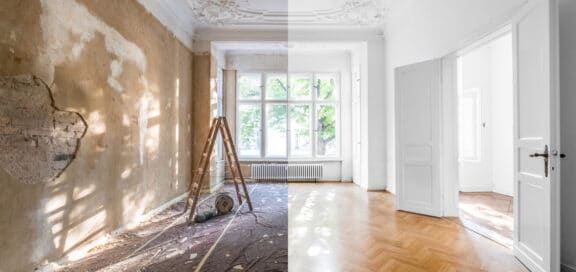The planned “Act on the Mobilization of Building Land” will, among other things, create a new paragraph in the Federal Building Code (Baugesetzbuch, BauGB), which – similar to “rent control law” and “milieu protection” – will enable communities to determine areas in which the division of existing buildings according to the Condominium Act (Wohnungseigentumsgesetz, WEG) is subject to a statutory requirement for approval.
Once the new law comes into force, it will – at least in Berlin and other densely populated areas with a delicate housing market – prevent almost all divisions according to the Condominium Act, let alone commercial divisions.
Although technically the draft does allow for divisions under very strict conditions (so-called ‘discretionary reduction to zero’, e.g. in the case of communities of heirs), it is highly unlikely that these conditions can actually be met by commercial distributors under current practice.
What Are The Consequences?
The law is not meant to be retroactive. If it is passed after the summer break, i.e. after August 2020, it is to be expected that things will become even more hectic on the real estate markets in the German agglomeration areas over the next few weeks. Short-term investments in existing buildings to expand one’s own portfolio seem very likely and, under certain conditions, understandable.
Yet, it must be clear to every commercial divider that the mere acquisition of property could potentially backfire economically under certain circumstances, unless it is ensured that the division according to the German Condominium Act is notarized before the law comes into force. The same holds true for the application for division which also has to be filed before the law is implemented. This is the only way for dividing owners to prevent the new law from impacting their business plans concerning the division of their properties, even if the actual entry of the division in the land register takes place much later. In the past, the Federal Court of Justice (FCJ) has ruled accordingly in similar cases concerning milieu protection areas. The criteria for legal assessment are likely to be similar. There may be particularities for the determination of the cut-off date in already designated milieu protection areas. In these cases, a permit according to Article 172 Federal Building Code is required already today. How this will affect the chain of deadlines is not clear yet.
Everything that happens after the law has come into force can at best be described as “the uncertain dark”. This holds particularly true for the question of whether this measure will actually support the creation of affordable housing in any significant way,. At the least, one may call into question the suitability of the law to actually “create” affordable housing (in the literal sense).
What needs to be done?
Due to these unclear prospects, dividing owners are advised to divide up their portfolio properties in the land register as soon as possible even if said properties might not be meant for sale yet. . This ensures that sellers retain their flexibility of selling individual condominiums from existing buildings in the future without any impediments. Once the law enters into force, this process is likely to become considerably more difficult.
Our experts in the multilingual German notary’s office of Buse Heberer Fromm in Berlin will advise and support you in the preparation of future legally secure declarations of partition in accordance with the German Condominium Act and their entry in the land register – if necessary, even at very short notice. Do not hesitate to contact us.
In the light of the presented draft bill the political changes the legislator has implemented in recent years become easily discernible. In 1951, when the Condominium Act was newly created, the initial situation – at least from a subjective point of view at that time – was comparable to the current situation on the housing market:
After the war, there was not enough affordable housing for the majority of the population. At that time, the legislator wanted to solve the problem by allowing as many people as possible to acquire property in order to ensure low housing costs in the long term. The result was the introduction of the German Condominium Act. It was a financing instrument to create housing.
The presented draft bill, however, marks a sharp reversal of direction as the legislator is obviously taking a completely opposite approach now. It will become more difficult again to create home ownership for private households. Berlin has the lowest ownership rate in Germany at 17.4% (statistics from 2018).








